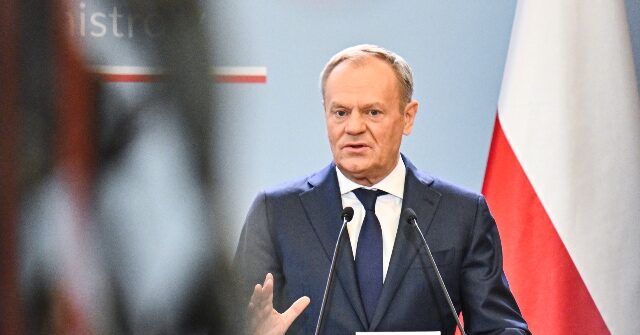Poland’s Prime Minister Donald Tusk has announced a temporary ban on asylum claims, a strategy aimed at enhancing national security and regaining control over immigration. Speaking at a convention in Warsaw, Tusk emphasized the need for the Polish state to have “100 percent control over who comes and enters Poland.” He indicated that formal proposals for this temporary suspension of the right to seek asylum would be introduced shortly. This significant policy shift represents a departure from Tusk’s previous stance when he was part of the EU leadership, highlighting a growing domestic focus on immigration issues.
Tusk’s new posture places him in direct opposition to the European Union’s broader goals concerning immigration and asylum policies. Previously, as the European Council President from 2014 to 2019, Tusk had opposed Brexit and the idea of reclaiming national border control—an argument that resonated with British voters concerned about migration. However, amidst the current political climate and challenges in border security, Tusk has pivoted to a position that prioritizes Poland’s safety over European integration principles, explicitly stating that his government will not adhere to EU migration pacts that compromise national security.
In recent months, the EU has implemented sweeping reforms to its asylum policies, including a contentious redistribution scheme where member states must accept allocated numbers of migrants or face significant fines. Countries like Poland, which has invested heavily in border security measures—including the construction of border fences—are pushing back against these EU directives. Tusk voiced strong opposition to being penalized for maintaining stringent border protection, underscoring that Poland should not be held accountable for other member states’ failures in managing their borders effectively.
Tusk also highlighted the role of foreign interference in migration issues, particularly by Russia and Belarus. He accused these nations of utilizing illegal migration as a form of hybrid warfare to destabilize European Union member countries. Following rising tensions, including violent incidents at the Polish-Belarusian border, Tusk announced plans for a buffer zone to curb illegal crossings. He characterized these measures as essential not just for Poland, but for the collective security of the region against tactics deemed threatening by neighboring authoritarian regimes.
Reassuring the public, Tusk clarified that the temporary ban on asylum was not meant to incite anti-migrant sentiment but rather to protect genuine migrants and uphold Poland’s interests. He expressed his commitment to supporting individuals who wish to contribute positively to Polish society, indicating that those who are seeking to work, pay taxes, and integrate deserve respect. This nuanced approach aims to distinguish between legitimate migration and illegal activities that threaten the nation’s security and social fabric amid growing concerns about mass migration and its associated challenges.
Tusk’s announcement reflects a broader trend among EU countries, such as Austria, France, Germany, and Norway, who are enacting stricter border controls in response to challenges stemming from immigration and terrorism. The overarching sentiment among these nations aligns with Tusk’s call for increased security measures to mitigate the risks associated with mass migration. As the situation evolves, it remains to be seen how Tusk’s plans will unfold and whether such unilateral actions will provoke further tensions with EU authorities concerned about maintaining a unified approach to migration and asylum in Europe.

